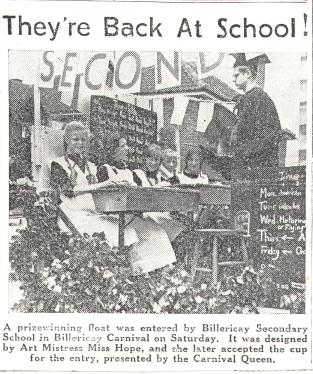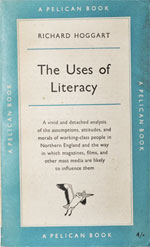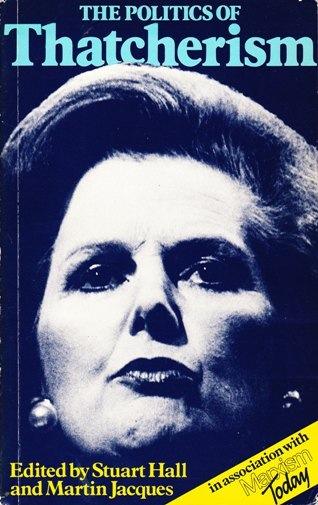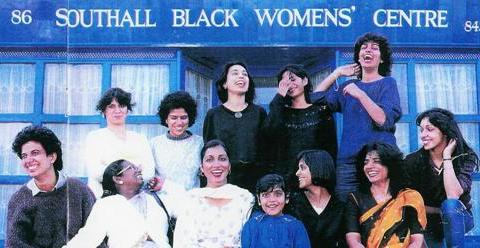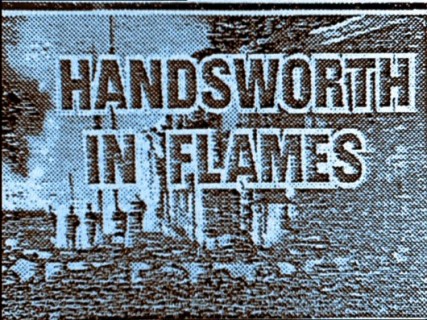Stuart Hall
White and black subjects
Stuart Hall claims that white and black are both culturally and politically constructed categories

|
Catherine Hall is a social historian. Stuart Hall's work treats history as central to sociology.
Mixed race family and different colonial class fractions
3.2.1932 Stuart Hall was born in Kingston, in the British colony of
Jamaica. He was the blackest child of a mixed race middle class
family who secured for him an elite education.
His mother (previously Hopwood) "was
brought up in a beautiful house on the hill, above a small estate". Her
relatives included a doctor and a lawyer trained in England. Her uncle was
"local white" (almost white) and that side of the family were fairer and of
a higher class than his father's side.
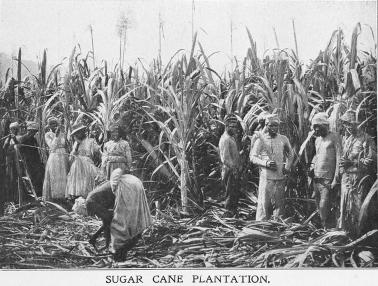
|
Stuart Hall argues that his mother and her family identified with the plantation class that had owned and run the sugar cane plantations where slaves provided the labour. |

|
His father was a business executive with the
United Fruit Company.
His grandfather on his father's side kept a drugstore in a poor village. His family was "ethnically very mixed- African, East Indian, Portuguese, Jewish". He locates his father as a member of the Jamaican bourgeoisie. Both his parents identified with British colonial rule and not with the movement for Jamaican independence. Stuart Hall identified with the colour of his skin: The blackness was a reminder of white slave owners having sex with black slaves somewhere in the history of his family. Stuart identified with the slaves, not with the slave owners. |

|
Stuart was a student at Jamaica College from about 1943. In 1951 he moved to England in a Rhodes Scholarship. |
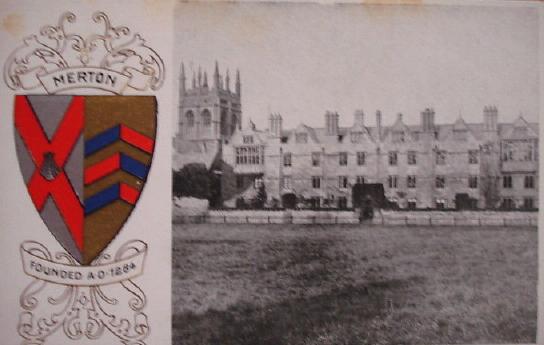
|
HALL, Stuart Henry McPhail. born 3 February 1932. Merton College, Oxford. 2nd Class English Language and Literature, Research for D. Phil.; L.T. for Univ. Ed., New Left Review 1960-1961. Chelsea College of Science, University of London, Department of Humanities, Lecturer 1962-1964. Birmingham University School of English: Research Fellow, Centre for Contemporary Cultural Studies 1965; Assistant to Director 1966; Deputy Director 1968; Acting Director. 1970; Director 1970. Pres. O.U.W. Soc. Teaching in London; Prof of Sociology, Open University. [See Register of Jamaican Rhodes Scholars

|
Barthes at the barbers
Not many years after Stuart Hall settled into Oxford University to study high culture, Roland Barthes called at his local barber in Paris and was given a popular magazine to read. |
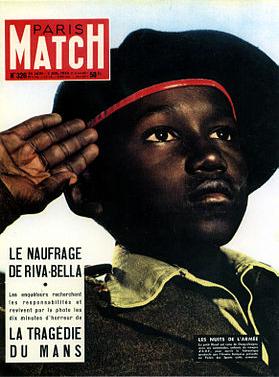
|
"I am at the barber's, and copy of Paris-Match is offered to me. On the cover, a young Negro in a French uniform is saluting, with his eyes uplifted, probably fixed on a fold of the tricolour. All this is the meaning of the picture. But whether naively or not, I see very well what it signifies to me : that France is a great Empire, that all her sons, without any colour discrimination, faithfully serve under the flag, and that there is no better answer to the detractors of an alleged colonialism than the zeal shown by this Negro in serving his so-called oppressors ..." (Barthes: 1957 p.201) |
| That is just Roland Barthe's imagination, says our Oxford scholar. The cover is just one of those French niger boys in army uniform saluting. I served in the British army after the first world war and I remember the French were keen on having Africans in the army, almost as if they were Frenchman. It was all about the rights of man. It really upset Germans in the 1920s that black soldier were occupying parts of the country. |

|
I think that was partly to blame for the rise of Hitler. The Germans feared racial degeneration. I bought some pretty lurid German bronzes for my art collection.
The Watch on the Rhine. A bronze medal cast by
Karl Goetz in 1920

|
"Liberte, Égalité, Fraternité" (Liberty, Equality, Fraternity) under the image of a black French soldier. |
|
[The implication for identity theory is that the formation of collective and individual identities is inter-active with the media. |

|
Film is one of the cultural media that shapes our perceptions of ourselves, our identity. In the introduction to a 1980s conference featuring Stuart Hall, the film critic Ray Durgnat is quoted as describing film as "that cultural arena in which society reflects upon and adjusts its image of itself" (page 4). That was probably said at the time of mass cinema audiences, but, the introduction argues that
""British cinema is alive and well and living on television" (page 6). |
Stuart Hall taught in schools for children who were not the cultural elite.
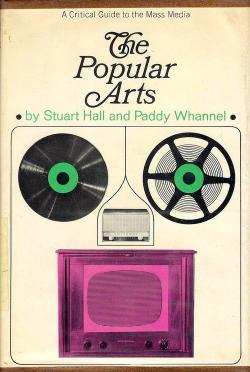
|
The cover design shows a vinyl record, a film reel, a symbol for a studio microphone encircling a transistor radio and a 1960s television. |
Those whom the gods wish to destroy, they first make mad. We
must be mad, literally mad, as a nation to be permitting the annual inflow
of some 50,000 dependents, who are for the most part the material of the
future growth of the immigrant-descended population. It is like watching a
nation busily engaged in heaping up its own funeral pyre."
...
the legislation proposed in the Race Relations Bill is the ... is the means
of showing that the immigrant communities can organise to consolidate their
members, to agitate and campaign against their fellow citizens, and to
overawe and dominate the rest with the legal weapons which the ignorant and
the ill-informed have provided. As I look ahead, I am filled with
foreboding; like the Roman, I seem to see "the River Tiber foaming with
much blood."
White politics as creative a perfomance two:
Thatcherism
"The Great Moving Right Show" Marxism Today
January 1979

|
In "The Great Moving Right Show", Stuart Hall wrote:
"Gramsci insisted that we get the "organic" and "conjunctural" aspects of the crisis into a proper relationship. What defines the "conjunctural" - the immediate terrains of struggle - is not simply the given economic conditions, but precisely the "incessant and persistent" efforts which are being made to defend and conserve the position.
"The "swing to the Right" is not a reflection of the crisis: it is itself a response to the crisis.
...
"Race constitutes another variant, since in recent months questions of race, racism and relations between the races, as well as immigration, have been dominated by the dialectic between the radical - respectable and the radical-rough forces of the Right. It was said about the 1960s and early 70s that, after all, Mr. Powell lost. This is true only if the shape of a whole conjuncture is to be measured by the career of a single individual. In another sense, there is an argument that "Powellism" won: not only because his official eclipse was followed by legislating into effect much of what he proposed, but because of the magical connections and short- circuits which Powellism was able to establish between the themes of race and immigration control and the images of the nation, the British people and the destruction of "our culture, our way of life". I would be happier about the temporary decline in the fortunes of the Front if so many of their themes had not been so swiftly reworked into a more respectable discourse on race by Conservative politicians in the first months of this year."
"New Ethnicities" is a paper that Stuart Hall wrote for a conference in 1988 on Black Film, British Cinema. [See paper].
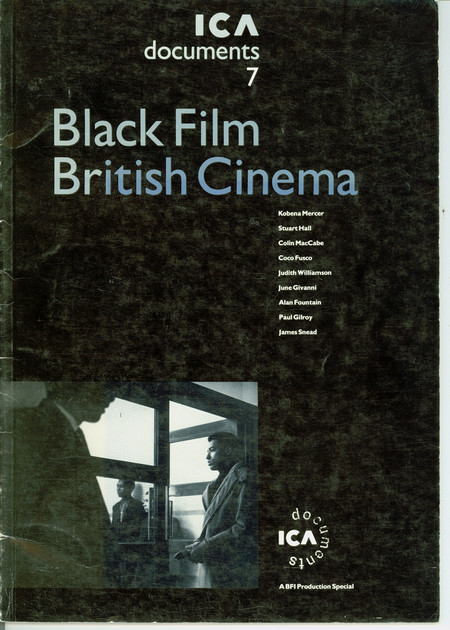
|
In it, Stuart Hall discusses the development of ethnic identity in relation to recent films including My Beautiful Launderette (1985) and Sammy and Rosie Get Laid (1987) - Handsworth Songs (1987) - and Dreaming Rivers (1988) - The Passion of Remembrance (1986).
Hall argues that the struggles represented by and in these films had moved from an older focus on "blacks", as a single entity, and "white" culture, to more diverse issues and identities. He suggests that
"a significant shift has been going on... in black cultural politics...".
This is not a movement from one to the other but
"two phases of one movement which constantly overlap and interweave".
He identifies diversification as the second "moment" in the movement.
The first moment was the construction of blackness as a concept of resistance:
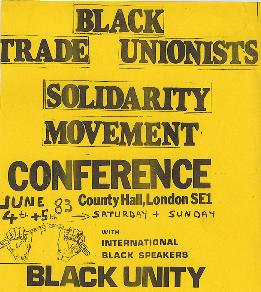
See the Bernie Grant Archive |
"Politically, this is the moment when the term 'black' was coined as a way of referencing the common experience of racism in Britain and came to provide the organising category of a new politics of resistance, amongst groups and communities with, in fact, very different histories, traditions and ethnic identities.... Culturally, this analysis formulated itself in terms of a critique of the way blacks were positioned as the unspoken and invisible 'other' of predominantly white aesthetic and cultural discourses." (page 27) |
An example of the use of "black" to describe a primarily Asian group is Southall Black Sisters, established in 1979 to meet the needs of Black (Asian and African-Caribbean) women. This group "aims to challenge all forms gender related violence against women". It was not, therefore, formed a resistance to white racism and illustrates both the use of the collective term "black" and the diversification of issues that Stuard Hall sees as the second phase.
Films and diversity
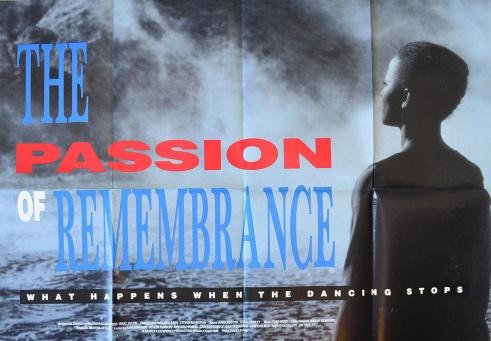
|
"a film that gives a mosaic impression of the different generations of a Black experience... poses some important questions within the drama: What emotions remain in the silences left by the unfinished business of the 60/70s - the continuing business of sex and gender?"

Omar, a Pakistani, asks Johnny, white leader of a racist Punk group, to work with him to establish a laundrette. The film shows their sexual relations. |
16.11.1985 My Beautiful Laundrette first shown in London. Stuart Hall described it as "one of the most riveting and important films produced by a black writer in recent years and precisely for the reason that made it so controversial: its refusal to represent the black experience in Britain as monolithic, self-contained, sexually stabilised and always 'right-on'" |

|

|
Dreaming Rivers - (external link). Miss T., from the Caribbean, dies alone in her one-room apartment. Her family and friends gather at her wake. An "impressionist rendering" of "the past, present and future". "Fragments of a life lived, but only partly remembered." "Three young people discuss the loss of" their mother as a metaphor for their Caribbean identity that is fragmented with the passing of each generation." "..remarkable for its syncretic use of Afro-Caribbean rituals and Christianity, the Creole language, and other Atlanticisms which indicate that Britishness is no longer the terrain of whiteness and Christianity." (Manthia Diawara, Black American Literature Forum) (source) |
The creativity of representation
In his paper, Hall speaks of the idea that the film
"represents" a
reality outside of itself. He says this idea is grounded in the "mimetic
theory of representation": the idea that representations, like film, mime
or imitate an exterior reality. But representations, he argues, can also
form or shape reality.
Identity
Stuart Hall's analysis of
identity in contemporary societies
examines the effects of
migration and dispersal of
ethnic groups
within and between countries.
"... events, relations, structures do have conditions of
existence and real effects, outside the sphere of the
discursive; but ...
it is only within the discursive"... [that they have] ... "meaning. Thus,
... how things are represented" ... [plays] ... "a constitutive, and not
merely a reflexive, after-the-event, role. This gives
questions of culture and ideology, and the scenarios of representation -
subjectivity,
identity,
politics - a formative, not merely an expressive,
place in the constitution of social and political life."
(Hall 1988 p.-)
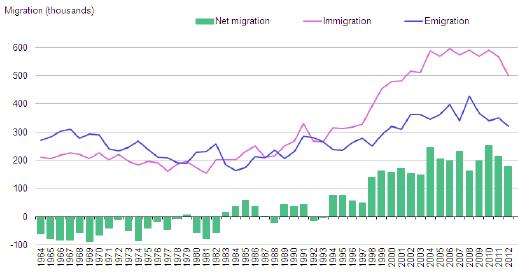
|
He argues that migration is the archetypal 20th/21st century experience, and that this has profoundly destabilised individual as well as collective identities.
"Now that, in the postmodern age, you all feel so dispersed, I become centred. What I've thought of as dispersed and fragmented comes, paradoxiacally, to be the representative modern experience" (quoted page 5)
On the issues of race and ethnicity, Hall has argued that there is no such thing as a single, or unique black identity. On the contrary, just as the whole idea of Britishness is now the subject of endless dispute, so also there are endless debates about what it means, for example, to be black British.
Hall adopts a historical and sociological perspective in order to understand of the global context in which individual and group identities are fashioned:
"If the black subject and black experience are not stabilised by Nature or by some other essential guarantee, then it must be the case that they are constructed historically, culturally, politically - and the term that refers to this is 'ethnicity'. The term ethnicity acknowledges the place of history, language and culture in the construction of subjectivity and identity..." (page 29)
British identity, he argues, was shaped, not by some essential quality of Britishness, but by its global network of trading and other relationships, especially with its former colonies. British identity is, therefore, intrinsically related to the historical structures and relations that underlie migration.
Stuart Hall is therefore critical of those who argue that there is - or ever has been - any such thing as a unified, national identity, such as Britishness, or Englishness. The idea of a national culture or a national identity is a social construction, a device which allows something as ethnically diverse and fragmented as, e.g. present day Britain, or USA, to be represented as a unified entity - as one nation.
Andrew Roberts likes to hear from users:
To contact him, please
use the Communication
Form

Headings
Mixed race family and different colonial class fractions
Imaginary Oxford scholar - 1 - 2 - 3
White politics as creative a perfomance one: Powellism
Two: Thatcherism
New ethnicities:
Theorising the issues:



